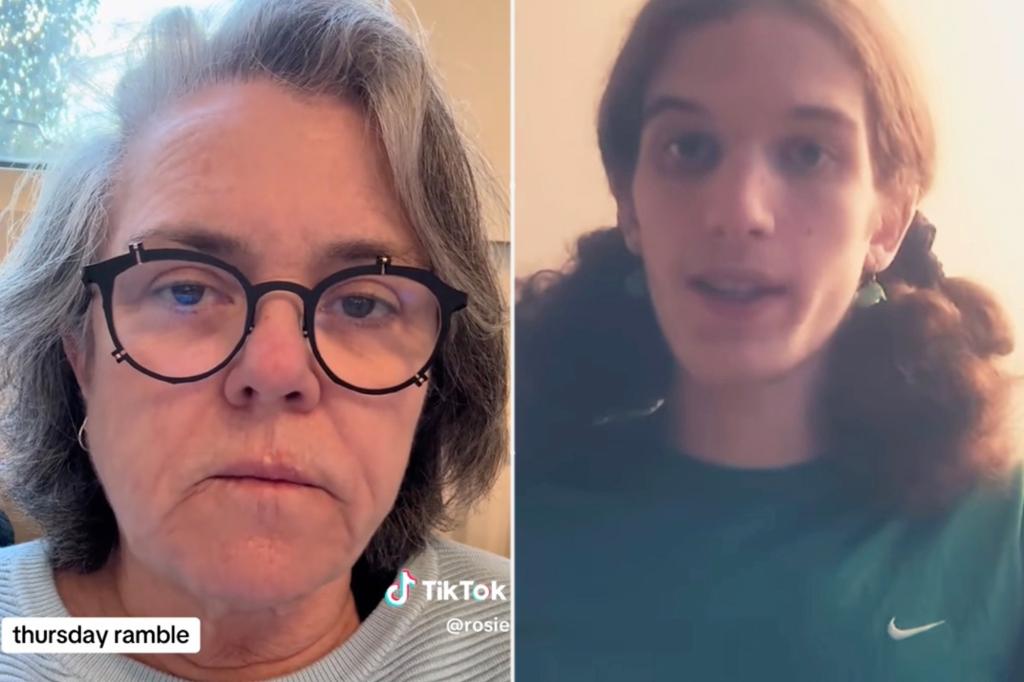O’Donnell’s Misinformation About Minneapolis School Shooter: Setting the Record Straight
In a troubling example of how misinformation can spread through celebrity platforms, Rosie O’Donnell recently made demonstrably false claims about the Minneapolis Catholic school shooter on social media. In a TikTok video that gained significant attention, the former talk show host told her followers: “What do you know? [The shooter] was a white guy, Republican, MAGA person. White supremacist.” This characterization, however, stands in direct contradiction to the evidence gathered by law enforcement and reported by media organizations across the political spectrum. The 29-year-old shooter, Robin Westman, left behind materials that painted a very different picture – one that included explicitly anti-Trump sentiments, including the disturbing phrase “Kill Donald Trump” written on one of his rifle magazines. This stark contrast between O’Donnell’s claims and reality highlights the dangers of rushing to assign political motivations to tragic events before the facts are established.
The actual evidence from the investigation reveals a deeply troubled individual whose manifesto and social media history showed no connections to Republican politics, the MAGA movement, or organized white supremacist groups. Instead, investigators found nihilistic writings, expressions of despair regarding gender identity, and various hateful comments targeting different groups. These findings have been consistently reported by law enforcement officials and verified by fact-checking organizations. Yet despite the clear evidence contradicting her claims, O’Donnell chose not to correct her statements but instead expanded her commentary into broader political territory, further conflating unrelated issues with the tragedy that occurred at the Minneapolis Catholic school. This pattern of behavior – making inflammatory claims and then pivoting to broader political grievances without addressing factual inaccuracies – contributes to the polarization that makes thoughtful discussion of complex issues increasingly difficult.
Rather than acknowledging her error, O’Donnell pivoted to attacking the National Rifle Association, calling it “a terrorist organization” that “has been for many years.” She then broadened her critique to American society at large, asking, “When is enough, enough America? Haven’t you had enough of Donald Trump? The Heritage Foundation? All their bulls–t? He’s their puppet… but guess what? It’s coming to an end.” This rhetorical strategy shifted attention away from her factual errors about the shooter’s motivations and instead redirected viewers toward familiar political talking points. By conflating the school shooting with various conservative organizations and figures, O’Donnell’s commentary moved further away from the specific tragedy and deeper into partisan territory, making it less likely that her audience would recognize or question her initial mischaracterization of the shooter.
What makes this situation particularly concerning is how it exemplifies a broader pattern in our media ecosystem, where public figures can make entirely false claims to large audiences with little accountability. The Minneapolis school shooting was a horrific tragedy that deserves serious, factual discussion about its causes and potential preventive measures. Instead, it became fodder for political narratives disconnected from reality. When public figures with significant platforms spread misinformation, it becomes increasingly difficult for the public to develop informed opinions based on shared facts. This is especially problematic in cases involving violence, where understanding true motivations might help prevent future tragedies. O’Donnell’s statements weren’t merely political opinion – they were factual claims about a person’s motivations that contradicted available evidence.
O’Donnell’s commentary took an even stranger turn when she veered into speculation about former President Trump’s health and spiritual state, saying, “Whether physically, emotionally, spiritually — or all of them wrapped up into one — he’s not doing well. He wants to get into heaven. I find that comical.” This further deviation from the original topic demonstrates how easily discussions of serious events can devolve into personal attacks and speculation unrelated to the matter at hand. The school shooting itself – a tragedy that affected real families and a community – became almost an afterthought in O’Donnell’s commentary, overshadowed by political grievances and personal animosity toward political figures. This pattern of communication, where tragic events are immediately processed through partisan lenses rather than approached with care and factual accuracy, makes it increasingly difficult for Americans to find common ground even in response to heartbreaking situations.
The broader lesson from this incident extends beyond any single public figure or political perspective. When we rush to fit tragedies into pre-existing political narratives before the facts are established, we do a disservice to victims, mislead the public, and make it harder to address the complex factors that contribute to violence. In an era where information spreads rapidly across social media platforms, the responsibility to verify facts before making public statements is more important than ever – particularly for individuals with large audiences and influence. The Minneapolis Catholic school shooting deserves to be understood on its own terms, based on evidence rather than conjecture or wishful thinking. Only by committing to factual accuracy first, before political interpretation, can we hope to have productive conversations about preventing future tragedies and healing as a society after such devastating events.


